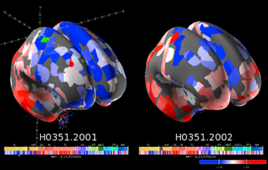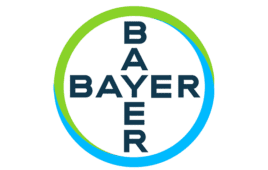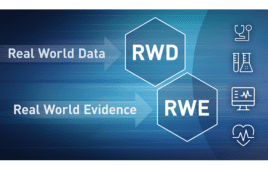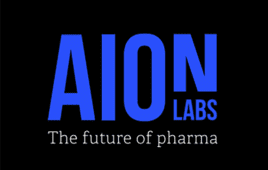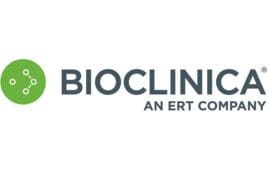There’s an old joke about chief information security officers (CISOs) being gatekeepers of new technologies and initiatives – the infamous “Department of No.” Imagine a bouncer who, strangely, doesn’t let anyone in, saying the club is already too full, even when it’s clearly empty. But that image is outdated — especially in risk-focused industries like…
Moving beyond buzzwords: When will a rising AI tide lift all Big Pharma boats?
For all of the talk about AI in drug discovery and development, few Big Pharmas are putting up big bucks in AI spending. A CRB survey from late 2023 painted a conservative picture: about half of drug developers planned on allocating between $1 and $10 million for data and AI projects over the next two…
Biotech bounces back at JPM 2024 on optimism, breakthroughs and calculated bets, but uncertainties persist
At the dawn of 2024, there’s a sense of renewed optimism in the biotech sector despite recent sector-specific challenges. This week, the JP Morgan Health Care Conference witnessed strong deal-making activity. For instance, Merck agreed to acquire cancer drug developer Harpoon Therapeutics for roughly $680 million, highlighting continued interest in oncology cancer therapies. Meanwhile, Novartis…
Genmab’s data-driven strategies speed up drug commercialization
Genmab’s senior vice president, global head of data science and AI, Hisham Hamadeh, describes the company’s journey to becoming “a data-driven decision-making company.” In one sense, there is little choice but to do so. “We’re swimming in data like never before. We’ve seen the volumes of data, the ability to compute on that data, and…
50 of the best-funded biotechs of 2023
As the year draws to a close, it is clear that molecular science and diagnostics is the hottest funding area in the biotech industry. In an analysis of 50 of the best-funded biotechs of 2023 focused on human health, molecular and science and diagnostics startups collectively attracting roughly $945 million, dwarfing the figures in other…
A year in review: AI’s evolving role in drug discovery and development in 2023
In the realm of drug discovery, AI is making waves, and 2023 could potentially be a pivotal year for this technology. As the technology enters the popular consciousness, pharma employees are wondering “why they can’t have similar AI-driven tools for their professional tasks,” said Diane Wuest, head of digital R&D at Sanofi, in a recent…
Why AI alone won’t resolve drug discovery challenges
Big Pharma and researchers are sharpening their focus on AI to speed drug discovery. But the path to fully AI-driven drug discovery faces substantial hurdles, according to Adityo Prakash, CEO of Verseon. “When it comes to drug discovery, AI has a data problem with which the pharmaceutical industry has not yet come to terms,” he…
iBio’s chief reveals strategy behind AI-driven bispecific antibody discovery plans
Biotech firm iBio (NYSEA:IBIO) has incorporated EngageTx, a machine learning-driven technology, into its development roadmap. This T-cell engaging antibody panel assists in generating bispecific antibodies targeting cancer cells. In particular, the firm is developing a novel Trophoblast Cell Surface Antigen 2 (TROP-2) bispecific molecule to target TROP-2-positive cancers. In addition to their focus on oncology,…
The Brain Knowledge Platform aims to illumine the brain’s cellular universe
Despite substantial progress in brain research, our understanding of the human brain remains limited. “We really don’t understand the fine circuitry of the brain — even in a relatively simple organism like a mouse,” confessed Ed Lein, a senior investigator at the Allen Institute for Brain Science. But AI in neuroscience research promises to change…
Decoding Bayer’s digital health leap and its implications on drug discovery and personalized medicine
The German multinational pharma and biotech colossus Bayer is taking further steps to ramp up its focus on digital health by launching a new business unit. In 2022, Bayer invested $9.5 million in Woebot Health, an AI-powered behavioral health platform company. In 2020, it launched a venture known as G4A Digital Health Partnership Program to…
Science unbound: AI and open data accelerate the pace of discovery
Scientists have long been perceived and portrayed in film as old people in white lab coats perched at a bench full of bubbling fluorescent liquids. The present-day reality of scientific research is quite different from old stereotypes, with AI-driven scientific breakthroughs emerging as a major driving force behind new discoveries. Scientists are increasingly data jockeys…
Behind the scenes: Dr. Andy Beck, PathAI CEO, talks PathExplore
In a recent conversation with Dr. Andy Beck, co-founder and CEO of PathAI, we had the opportunity to discuss PathExplore, an AI-driven platform that aims to transform the way tumor microenvironment (TME) analysis is conducted. Traditional methods such as manual pathology, multiplex immunofluorescence and single-cell omics often face limitations, including high costs or tissue consumption.…
How AI-based technologies improve clinical trial design, site selection and competitive intelligence
Clinical trials form the cornerstone of evidence-based medicine and are essential to establishing the safety and efficacy of new drugs. However, only some of the information in clinical trial reports is well-structured and searchable via keywords; much of the information is buried in unstructured text. In the past, uncovering actionable insights from this unstructured text…
Drug discovery isn’t rocket science. It’s harder.
Early in my career, my manager used the phrase in the above headline to highlight the difficulty inherent in drug discovery. Over the ensuing years, I have seen that statement repeatedly confirmed by the brutal attrition in the discovery and development of new drugs. There are so many variables that can kill a drug discovery…
Fueling breakthroughs in pharma AI: 3 critical factors
Big data and AI offer massive opportunities to the pharmaceutical industry — in theory. In reality, many companies are struggling to realize the potential of these tools. Some organizations have been hesitant or resistant to leveraging the technologies. Others may have attempted to embrace them early on but are now beginning their second or third…
Ethics matter when deploying RWD and RWE
Because adoption of real-world data (RWD) and real-world evidence (RWE) remains at an early stage, individual biopharma executives are likely to take a central role in ensuring that such data — and the related use of AI — are handled ethically. It becomes imperative that drug developers using RWD ensure transparency, apply consistent rules, peer…
Why Big Pharma is partnering with startups as it becomes more data-driven
Big Pharma’s ability to innovate has grown in recent years, and the industry’s increasing reliance on data could help it sustain momentum in the future. While McKinsey notes that the industry has been relatively slow in adopting technologies such as AI and automation, the industry is growing more tech-savvy. “The acceptance of data is picking up across…
The role of natural language processing in advancing disease research
In any area of disease research, a deep understanding of recent and future trends surrounding a particular condition is crucial to the drug discovery process. But with the volume of scientific literature increasing all the time, it is difficult to manually sift through all the existing information and correlate data in such a way to…
Querying the queries: An AI approach to manage clinical data quality
High-quality clinical trial data serves as the foundation for analysis, submission, approval, labeling and marketing of a compound under study. Widely used throughout the industry, data cleaning ensures that the process deployed to collect data is consistent and accurate. Challenges in collection include data errors during manual data entry, i.e., spelling and transcription mishaps, range,…
9 predictions for pharma in 2022
The pharma industry has been slower to embrace technologies such as AI and digital technology than many less-regulated sectors. The COVID-19 pandemic has changed the equation, forcing pharma companies to become more agile and open-minded in approaching drug discovery and development, including managing evolving clinical trials. In this article, several experts offered their predictions of…
SimBioSys secures $15 million in Series A funding for computational oncology software
The developer of a cloud-based application for oncology care and research, SimBioSys, has raised $15 million in Series A funding. Genoa Ventures and Northpond Ventures led the funding round, which also involved AV8 Ventures, Heritage Medical Group, and Mayo Clinic. SimBioSys also announced that existing investors and its founders participated in the financing, raising a total of $21 million. The company…
AWS and pharma heavyweights join forces on AI-based drug discovery lab
The goal of using artificial intelligence to transform drug discovery and development may not be novel. But a new alliance is unique in both the stature of companies belonging to it and its choice of an innovation model. Big Pharma firms AstraZeneca (LON:AZN), Merck KGaA (ETR: MRK), Pfizer (NYSE:PFE) and Teva (NYSE:TEVA) will partner with Amazon…
ConcertAI and Janssen deepen data-science collaboration
A multi-year partnership between Janssen Research & Development (NYSE: JNJ) and ConcertAI (Cambridge, Mass.) will focus on using real-world data and AI for oncology applications involving multiple cancer types. ConcertAI will work “almost an extension of [Janssen’s] R&D development process,” said Jeff Elton, CEO of the company. The two companies’ teams will work closely together…
Insilico Medicine announces PROTAC partnership with Arvinas
Insilico Medicine (Hong Kong) has entered into an R&D pact with Arvinas (NSDQ:ARVN) to explore applications of Insilico’s AI technology to PROTACs. By regulating protein function, PROTACS can optimize the sensitivity to drug-resistant targets, as an article in Signal Transduction and Targeted Therapy notes Insilico and Arvinas will partner in designing treatment modalities for current and next-generation…
Why Bioclinica tapped AI in immunotherapy trials early in the pandemic
An AI-based system proved its mettle in screening patients in immunotherapy trials, according to Dan Gebow, chief innovation officer at Bioclinica. Early in the COVID-19 pandemic, developers of cancer immunotherapies worried that the novel coronavirus would interfere with their clinical trial results. In previous years, the scientific community established that immunotherapy can rarely cause interstitial…









